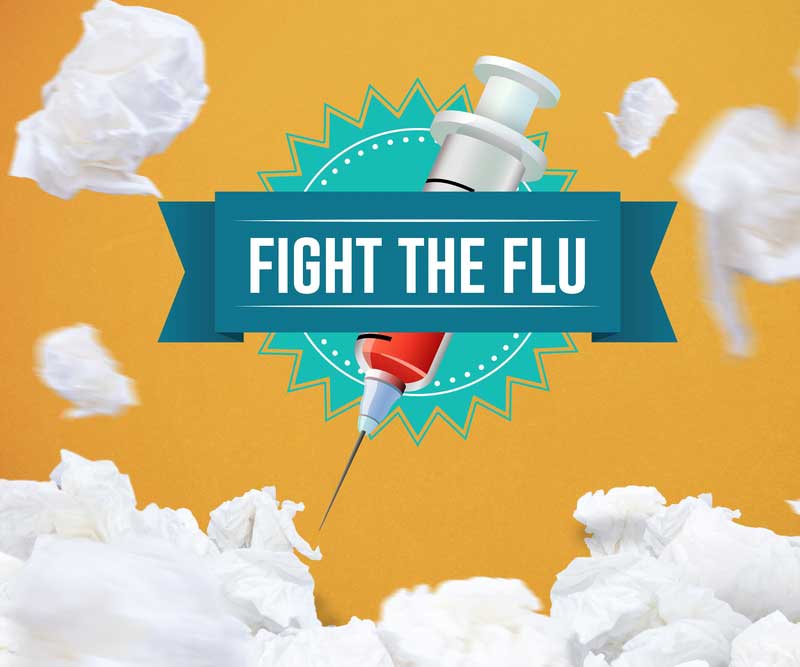As the holiday season comes around, so does the season of sniffles and sneezes. It’s the season of dodging and evading germs around every corner and often resigning yourself to hot soup in bed when those efforts seem futile.
Here you’ll find some tips on keeping the cold and flu at bay, as well as important things to be aware of whether you get sick or not.
Of course, start with basic hygiene and reducing your risk of exposure to germs and viruses. Wash your hands thoroughly, avoid touching your face, get those flu shots, and stay home from work if you start to feel off. Additionally, don’t just focus on keeping yourself clean. Maintain the cleanliness of the area around you, particularly the things you touch that other people touch, too. It also helps to eat a healthy diet and get a good amount of exercise to keep your body in peak condition so it can easily fight off those pesky germs.
Regarding the flu shot, be sure to prepare ahead of time by getting it early in the season (remember, it takes about two weeks for the vaccine to kick in). But, that said, don’t get it too early, or you’ll reduce your protection during the later months of the season. The CDC recommends getting the shot before or as soon as you notice the flu starting to spread in your local community, and at the latest by the end of October.
Now, if you do come down with something, it’s important to know that both the common cold and the flu are caused by viruses. This means that the treatment will not come in the form of antibiotics which target bacteria rather than viruses. In fact, taking antibiotics for a viral infection does much more harm than good. Antibiotics kill off the vast majority of harmful bacteria but leave behind a small potion that was able to survive the attack. These bacteria then pass on their antibiotic-resistant genes to the next generation, making the whole population more resistant over time.
The result of antibiotic overuse is that scientists need to constantly make stronger and stronger antibiotics to tackle these evolving critters. Not only does this make the medicine much harsher on your stomach and bowels, but we’re also starting to reach a point where we can’t make the antibiotics strong enough to combat the bacteria at all. So-called “superbugs” are popping up around the country and world killing people because antibiotics are just of no use to them.
So, if not antibiotics, what should you use to treat the cold and flu?
The cold hard truth (ba-dum-tss) is that there is no cure for the cold or flu once you have it. You can, however, treat them with some over-the-counter medicines and home remedies including staying hydrated, getting a lot of rest, gargling salt water for a sore throat, and taking pain relievers such as Tylenol, Advil, and Motrin. You should also stay away from uninfected people to prevent passing anything on. The best plan at that point is to just get comfortable and wait it out.





